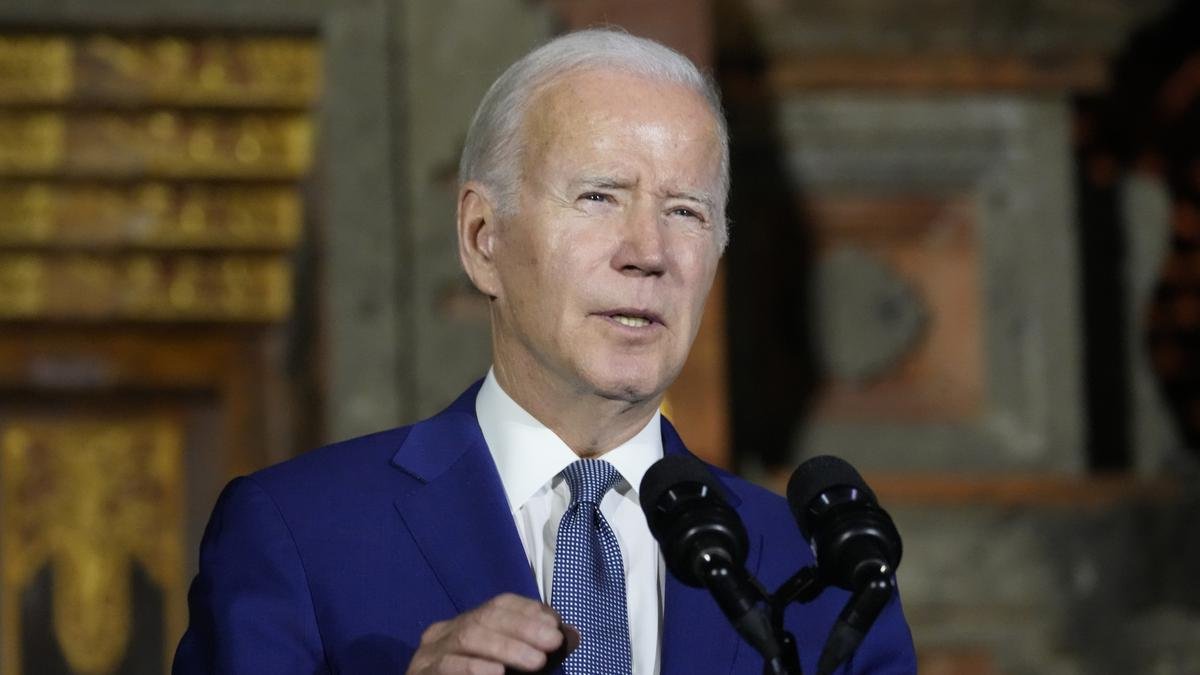U.S. President Joe Biden’s impending journey to India, scheduled from September 7 to 10, holds great significance as he prepares to partake in the G20 Leaders’ Summit, a pivotal event set to convene international leaders for deliberations on a multitude of global matters. This declaration emerged from the White House on a Tuesday, underlining the President’s intent to engage with his counterparts on topics encompassing the ongoing Ukraine conflict and a myriad of other pressing global issues.
The White House, in a statement, has emphasized that President Biden is poised to commend Prime Minister Narendra Modi’s stewardship of the G20, a testament to India’s role in steering this international platform. The forthcoming G20 summit, slated for September 9 and 10, is poised to become a milestone event, drawing together a diverse assembly of world leaders on the vibrant stage of New Delhi. Marking India’s takeover of the G20 Presidency from Indonesia on December 1, 2022, this summit holds great promise for dialogue and collaboration.
In the words of White House Press Secretary Karine Jean-Pierre, “President Biden and G20 partners will discuss a range of joint efforts to tackle global issues, including on the clean energy transition and combating climate change, mitigating the economic and social impacts of Putin’s war in Ukraine […].” Additionally, the statement underscores the commitment to augmenting the capabilities of multilateral development banks, such as the World Bank, with the goal of ameliorating global poverty and addressing interconnected global challenges.
The anticipated visit to New Delhi is not just a diplomatic rendezvous; it carries the weight of recognizing Prime Minister Modi’s leadership in steering the G20. During his time in India’s capital, President Biden is set to extend commendation to Prime Minister Modi for his role in the G20 and reaffirm the United States’ dedication to the G20 as the paramount platform for economic cooperation. An additional highlight is President Biden’s pledge to host the G20 summit in 2026, thereby reinforcing the U.S.’s commitment to this forum.
Jake Sullivan, the White House national security adviser, has divulged that Biden’s interactions on the sidelines of the summit will primarily revolve around critical matters such as climate change and the ongoing Ukraine conflict, including Russia’s engagement in this dispute.
The G20, also recognized as the Group of 20, functions as an intergovernmental forum that congregates the world’s most influential economies, both developed and developing. Collectively, the G20 member states represent a staggering 85% of global GDP, over 75% of global trade, and approximately two-thirds of the world’s population. Within its diverse membership, the G20 encompasses nations including Argentina, Australia, Brazil, Canada, China, France, Germany, India, Indonesia, Italy, Japan, the Republic of Korea, Mexico, Russia, Saudi Arabia, South Africa, Turkey, the UK, the U.S., and the European Union.
As President Biden readies himself for his voyage to India, this event symbolizes a convergence of nations united by the pursuit of global progress, a shared aspiration to address pressing issues, and a testament to diplomacy’s role in shaping the course of international affairs.
In parallel, Vice President Kamala Harris is slated to embark on her own diplomatic journey from September 4 to 7, with Jakarta, Indonesia, as her destination. Her itinerary includes participation in the U.S.-ASEAN Summit and the East Asia Summit, providing her with the platform to engage with leaders from the Indo-Pacific region. During her time in Jakarta, Vice President Harris and ASEAN leaders will deliberate on the substantial growth of U.S.-ASEAN relations under the Biden-Harris Administration. This visit not only strengthens existing ties but also reaffirms the unwavering U.S. commitment to Southeast Asia and the central role that ASEAN plays in the region.
Karine Jean-Pierre expounds, “This is the Vice President’s third trip to Southeast Asia in the past two years, and builds on her August 2021 visit to Singapore and Vietnam and her November 2022 visit to Thailand and the Philippines.” This visit serves as a continuation of President Biden’s engagements with ASEAN leaders, establishing a narrative of collaboration and cooperation that spans beyond geographical boundaries and temporal constraints





